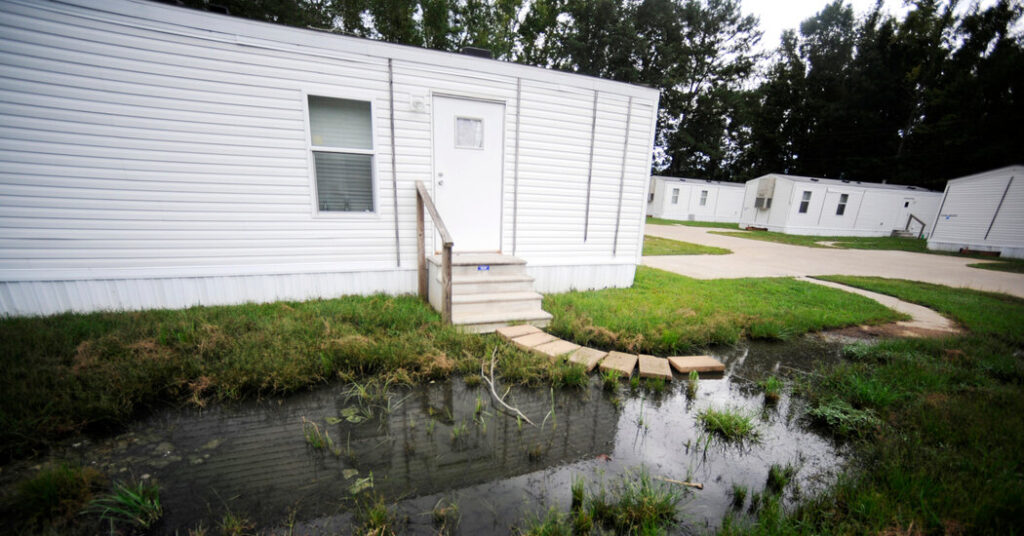The Justice Department said it had reached an interim agreement with the health departments of Alabama and one of its rural counties over practices found to discriminate against generations of Black residents.
Under the agreement announced Thursday, the Alabama Department of Public Health and the Lowndes County Health Department said they would improve wastewater infrastructure, measure the health risks associated with raw sewage exposure, and stop penalizing residents who cannot afford adequate treatment systems.
The agreement represents “a new chapter for Black residents of Lowndes County, Ala., who have endured health dangers, indignities and racial injustice for far too long,” said Kristen Clarke, the assistant attorney general for the Justice Department’s civil rights division.
Catherine Coleman Flowers, an environmental activist who grew up in Lowndes, said that residents of the county, like those in many other rural communities, use wastewater systems installed on the grounds of homes and businesses rather than a centralized sewage treatment plant operated by a local government. But the county stood alone in penalizing residents for sanitation issues that were outside their control, she added.
“On-site septics are failing across the country, but Lowndes County is the only place I’ve seen where it’s dealt with in a punitive manner,” said Ms. Flowers, who was awarded a MacArthur “genius” grant in 2020 for her work raising public awareness about water sanitation in rural areas.
In a statement, the Alabama Department of Public Health, which cooperated with the investigation, denied conducting its programs in a discriminatory manner.
Lowndes County, home to about 10,000 people in rural Alabama, is nearly three-quarters Black, and its poverty rate is more than double that of the national average. Unincorporated areas of the county are not connected to the municipal sewage system, leaving about 80 percent of residents to rely on on-site wastewater systems like septic tanks. Forty percent use failing home systems or none at all.
But because these systems are incompatible with the dense soil that is prevalent in central Alabama, residents have for generations used pipes to guide fecal matter and wastewater to holes and ditches in backyards and open areas. Given the heavy rainfall and nonporous soil, the waste festers, exposing residents to health risks. A 2017 study found that 73 percent of residents had been exposed to raw sewage in their homes and a third tested positive for hookworms, an intestinal parasite.
“All these years we’ve been here, my kids have never — name a year — been able to go out there and play in the yard. And even when it wasn’t flooded, let me tell you something: the ground stays so soft, you could walk out there and like you sinking,” a resident whose yard has routinely flooded with waste for three decades told “60 Minutes” in 2021.
Alabama health authorities then fine these residents for sanitation violations caused by the raw sewage exposure, levying in essence a “double penalty of being criminalized for these injustices,” Ms. Clarke said.
Ms. Clarke added that the authorities were aware of the disproportionate burden placed on Black residents, but had failed to remedy the situation.
The investigation was the Justice Department’s first environmental justice inquiry, carried out over nearly 18 months. The department will reopen the investigation if the Alabama Department of Public Health fails to comply with the terms of the agreement.


